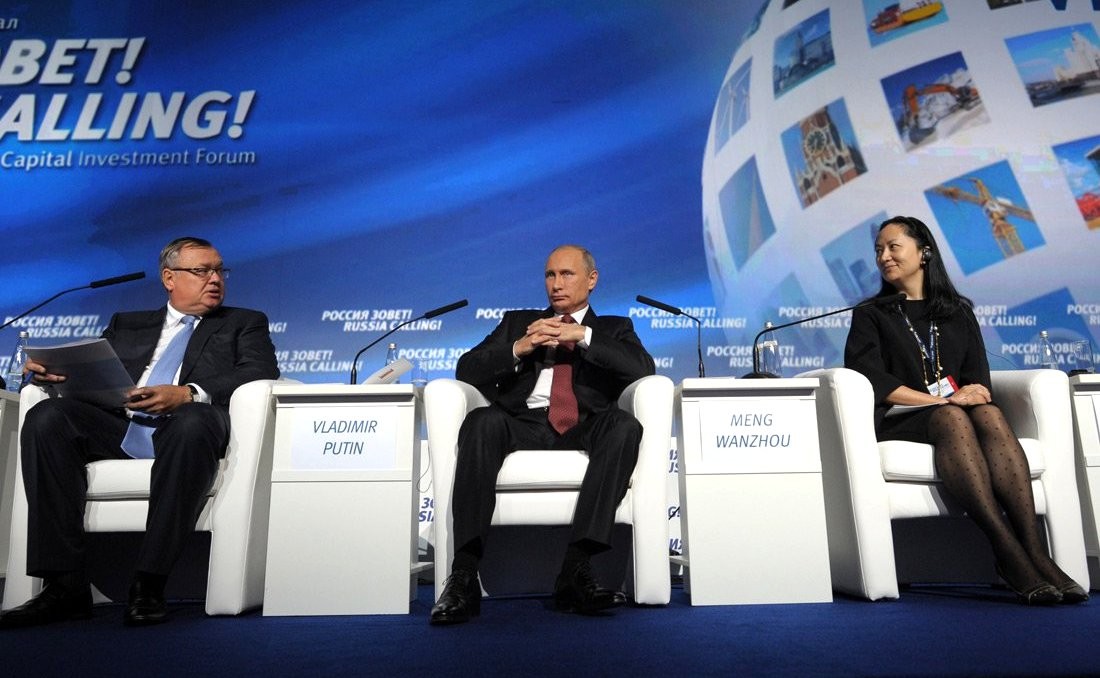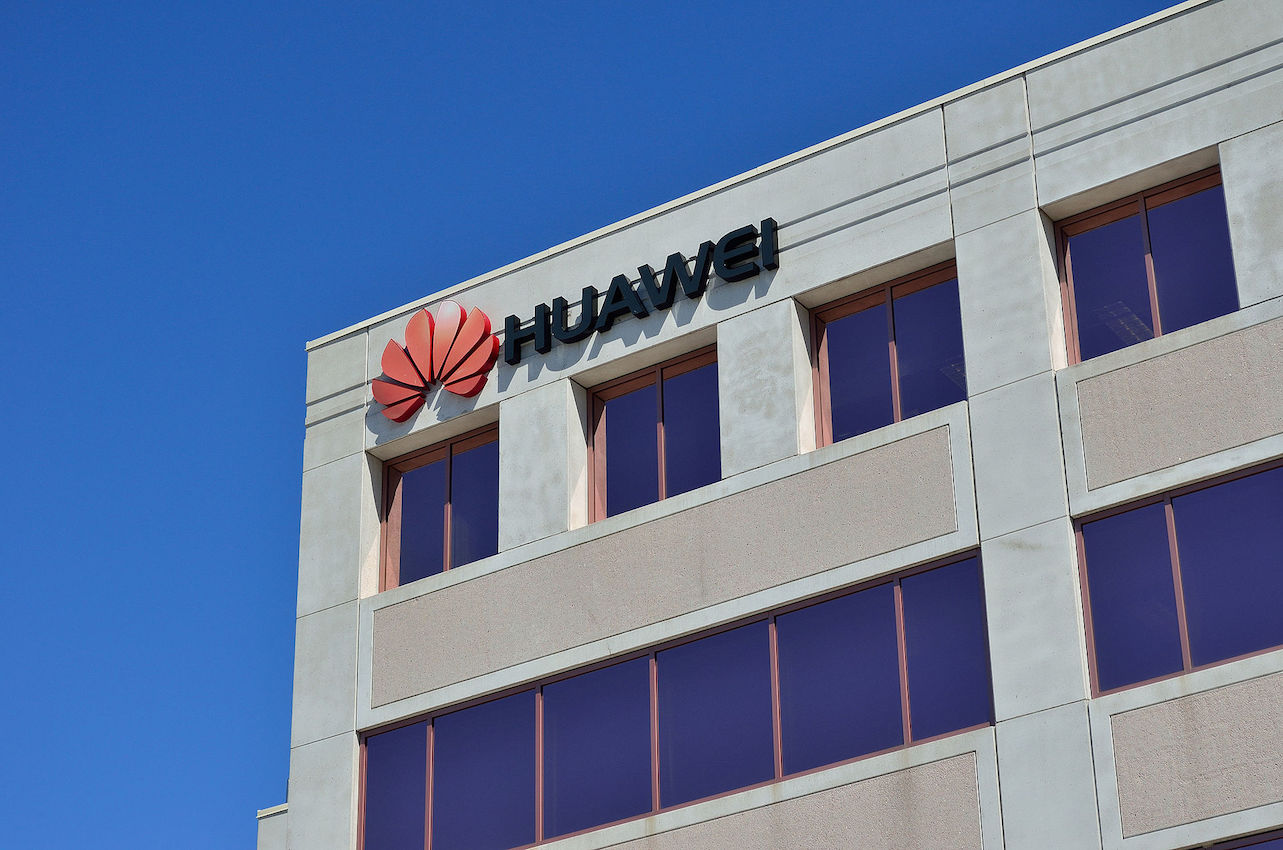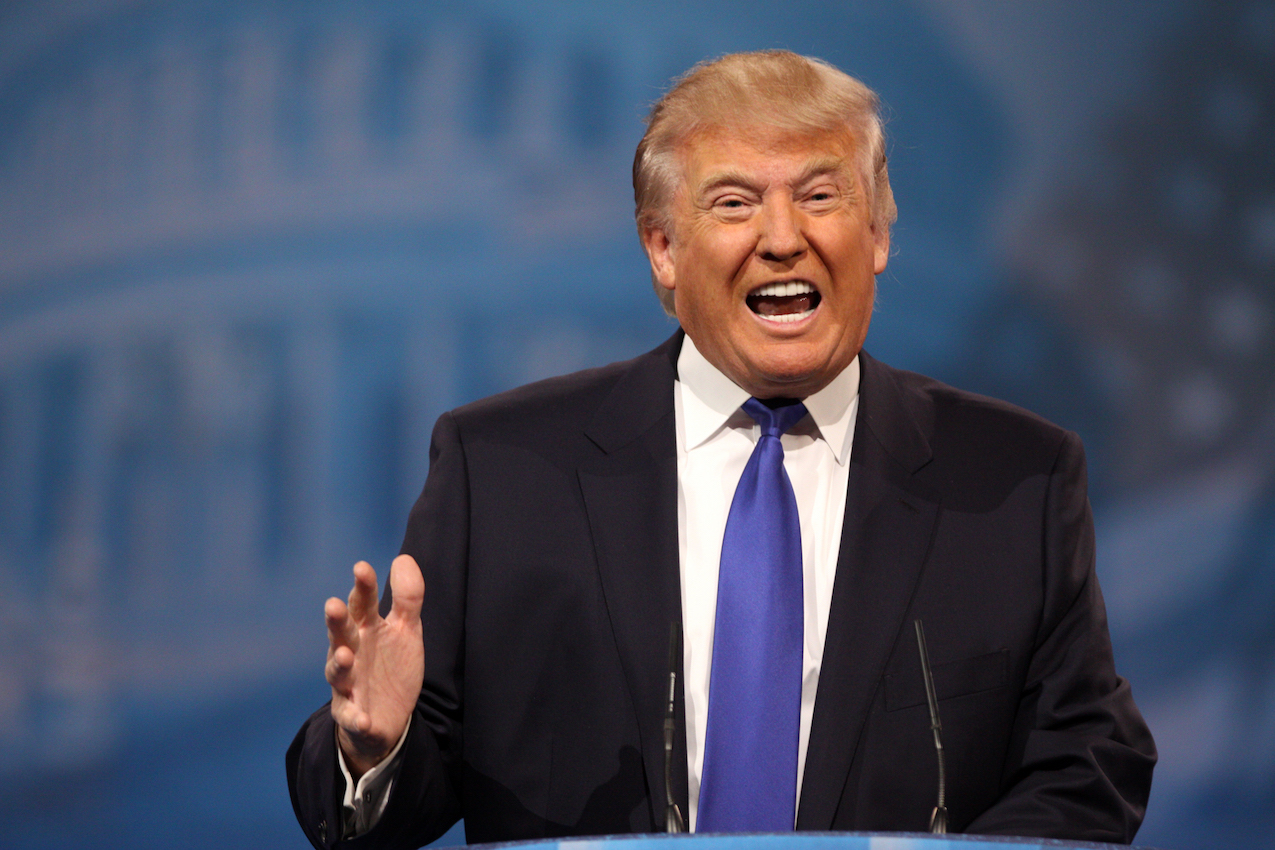by Brian Hioe
語言:
English
Photo Credit: Olaf Kosinsky/WikiCommons/CC
THE US-CHINA trade war has significantly escalated in the past week, with American tech giant Google cutting off Chinese telecommunications company Huawei from firmware updates for its Android operating system, the Google Play store, and Google apps. It is highly possible that China will take some retaliatory action against America in the coming days, though it is unclear what form such retaliatory actions would take.
 Meng Wanzhou (right), sitting next to Russian president Vladimir Putin (center) and VTB president Andrey Kostin (left). Photo credit: Kremlin/CC
Meng Wanzhou (right), sitting next to Russian president Vladimir Putin (center) and VTB president Andrey Kostin (left). Photo credit: Kremlin/CC
With the prevalent use of Huawei telecommunications equipment and cell phones worldwide, governments around the world have long debated whether Huawei presented a security threat, possibly allowing the Chinese government a backdoor into sensitive information. However, Huawei became a particular target of the US-China trade war after the Canadian government detained Huawei chief financial officer Meng Wanzhou, the daughter of Huawei founder Ren Zhengfei, in December of last year.
The detention was conducted by the Canadian government on behest of America, with the accusation that Huawei violated trade sanctions in selling telecommunications equipment to Iran. Nevertheless, it is probable that the detention was with the aim of putting pressure on China; after all, Chinese companies has faced charges for violating trade sanctions in the past, but this did not lead to the detention of their executives.
It has been suggested that Google cutting Huawei off from its software infrastructure could be a death knell for Huawei, at least outside of China. Although some American allies actually backed away from an outright ban on Huawei after publicly mulling Huawei’s potential security threat, American president Donald Trump signed an executive order banning American companies from using telecoms equipment from Huawei and other companies deemed national security risks earlier this month.
The move by the Trump administration puts pressure on American allies to follow through with similar bans, as well as pressure on mobile carriers selling Huawei phones internationally. The effects of the ban were immediate, with mobile carriers in the UK and Japan ceasing the sale of Huawei phones. Likewise, the move by Google will also put pressure on other international companies to follow through with similar bans. And this could prove deadly for Huawei.
 Photo credit: Ray Sayonho/WikiCommons
Photo credit: Ray Sayonho/WikiCommons
Namely, in response to the ban by Google, Huawei touted that it intended to move toward developing its own app store. It soon emerged that Huawei seems to have been planning for this contingency for some time—a prescient move, all things considered, but also one which would make sense regarding the global ambitions of the company. Apart from developing its own app store, Huawei has also solicited third-party app store Aptoide as a potential alternative to the Google Play Store. Huawei also claims that it is developing its own indigenous operating system, though such plans seem to be running into delays.
At the same time, Huawei remains dependent on American-made semiconductor components for its products operate. The blacklisting of Huawei makes it difficult for Huawei to access American chips, with American companies such as Broadcom, Intel, Qualcomm, and Xilinx announcing that they will cease supplying Huawei, at least for the time being. And it is likely that other international companies will follow suit with cutting off access to Huawei, as observed in UK-based chip maker ARM—formerly the UK’s largest tech firm until ARM changed ownership to a Japanese firm—also ceasing sales to Huawei because of its use of US-sourced technology in some designs. Taiwan’s TSMC has announced that it will continue supplying Huawei, however, because of its limited use of American software and technology.
The potential for global disruption after the ban could be large. Huawei is the world’s second largest supplier of smartphones and the largest supplier of telecommunications equipment. Bans by Huawei by international companies will no doubt greatly affect the roll-out of 5G communications networks globally.
Given the interrelation of the global economy, it does not surprise that Huawei and other Chinese companies are, in fact, highly reliant on American companies. Apart from that this proves a weak point of Chinese companies that the Trump administration has targeted in the ongoing US-China trade war, the Trump administration is also able to make international companies fall in line with its actions. It remains to be seen whether America will continue with pressure on Huawei or whether this is a high-risk negotiating tactic before trade talks with China.
 American president Donald Trump. Photo credit: Gage Skidmore/Flickr/CC
American president Donald Trump. Photo credit: Gage Skidmore/Flickr/CC
At the same time, however, one expects some kind of retaliatory action from China in coming weeks. China responded to the Trump administration raising American tariffs on 200 billion USD worth of Chinese goods from 10% to 25% earlier in May by raising tariffs on 60 billion USD in American goods and to the detention of Meng Wanzhou in Canada by detaining two Canadian citizens on spying charges.
One generally expects China to take some form of action against American tech companies, possibly also by imposing bans. The effects of this remain to be seen, given that US-China trade relations run two ways, and China also has the ability to hurt American tech companies where it hurts.

